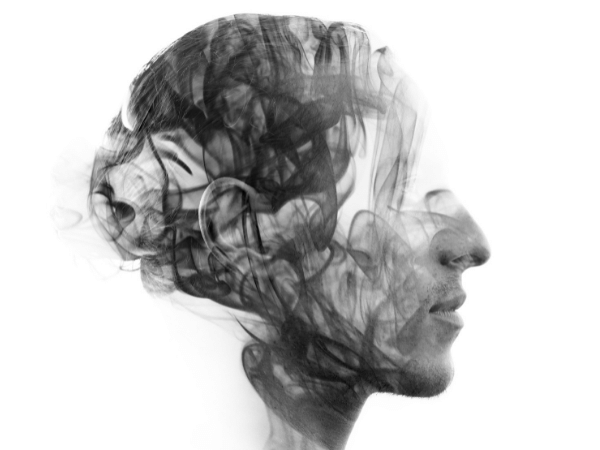Heroin is incredibly addictive and destructive, and any use of the drug has drastic negative effects on one’s body and mind. However, overdosing on heroin can be even more destructive, with risks of permanent damage or death. Recognizing the signs of a heroin overdose is crucial for taking action to save the life of a family member, loved one, or stranger. Being prepared and informed not only helps one provide needed assistance to those experiencing an overdose but can also ensure that one is able to use the situation to promote the necessary professional treatment to address one’s heroin use.
Identifying Heroin Use
Despite heroin’s myriad of negative effects, its use is still increasing. In 2020 alone, there were 271 heroin overdose deaths across Arizona, and such a number is not uncommon across the United States. However, while this number is already staggering, it does not account for the number of overdoses where an individual survived or overdose deaths where other drugs were implicated. The efforts of educated individuals and trained medical professionals are necessary, as identifying heroin use can help prevent overdose from leading to this tragic outcome.
Suspecting a loved one of heroin use can be an incredibly difficult and emotional situation. There is no easy way to navigate addiction to such a destructive drug. However, educating oneself can help each individual be more prepared for the tragic event of an overdose.
While each person will have their own relationship with heroin, some common signs of its use include:
- Depression
- Anxiety
- Mood swings
- Sudden changes in weight
- Financial complications
- Difficulty maintaining employment or tending to responsibilities
- Pervasive paranoia
- Delusions
- Self-isolation practices or developing a more secretive lifestyle
- Fatigue
- Lack of motivation or disinterest in previous hobbies or obligations
- Wearing out-of-season clothes, such as sweatshirts in summer
- Track marks, scabs, or bruises on the skin
Recognizing any of these signs is cause for concern and could demand an individual address and open a dialogue regarding one’s concerns. However, heroin is still incredibly addictive, and it is still important to be prepared for a heroin overdose even while one is bringing to light the need for recovery and treatment.
The Signs of Heroin Overdose
Being nearby while one is overdosing on heroin is incredibly frightening. However, it is also a time-sensitive situation, and being able to act as soon as possible is crucial. Effectively identifying the signs of overdose is the first step, with the common signs of overdose, including:
- Shallow or difficult breathing
- Pale skin
- Blue-ish lips or fingertips
- Discolored tongue and skin
- Constricted pupils
- Weak pulse
- Unresponsive to outside stimuli
- Nausea
- Vomiting
Being able to identify these signs is crucial, and one does not need to identify all of them to begin acting on the information provided. Recognizing any of these symptoms is a cause for contacting emergency personnel and taking action to help a family member, loved one, or stranger navigate a heroin overdose.
Taking Action
Heroin overdoses demand an individual take decisive, informed action to provide proper support. First, contacting emergency services is paramount. When reporting an overdose, it is important to be able to provide direct directions to one’s physical location. This can be an address or any major landmarks that may be around in order to provide emergency services with the most accurate location possible, allowing them to get to the scene quickly. Directions to one’s specific location, such as which side of a building one is on, are also important.
Report any additional information that may also be necessary. Relaying exact symptoms one observes, if there are any indications of combining substances such as finding burnt spoons, syringes, and bottles of alcohol together, and anything else across the scene can all allow emergency personnel to tend to the scene with the pertinent equipment, expectations, and strategy already formed.
However, finding and identifying the signs of a heroin overdose does not mean that one has done all one can. Clearing airways to allow for easier breathing and turning an individual on their side to avoid vomit from clogging one’s airways is important. Helping to clear out the space of any obstructions that may be present, from obstacles on the floor to any onlooking crowds of people that are not providing direct and educated support, is also beneficial.
If one has access to Narcan – a nasal spray used to help counteract the effects of opioid overdose – utilizing this key resource and informing emergency personnel of when and how it was administered can all be essential.
Finding Treatment
Overdosing on heroin is a life-changing experience and can be the catalyst to true change in one’s life. Being prepared to help a family member or loved one take the experience seriously is essential for getting an individual to the necessary treatment and recovery program. Researching effective detox and residential programs and communicating with a loved one the severity of the situation can be essential for helping a loved one commit to these programs, all while situation oneself as a support in their life.
There is no easy way to overcome addiction, but helping a loved one navigate overdose, treatment, and withdrawal and emerge with a newfound need for recovery in mind can be the needed change to begin one’s healing journey.
Heroin use is incredibly destructive, and being prepared in the event of a heroin overdose is instrumental in saving lives and facilitating change. At Buena Vista Recovery, we understand these life-changing experiences, and we are prepared to help you or a loved one challenge your use of heroin today. We offer a comprehensive approach to your recovery, helping address each aspect of your life and the many ways heroin affects your daily routine. From detox and inpatient treatment to intensive outpatient programs, we can help you address the effects of heroin throughout each stage of your unique recovery journey. For more information on how we can help you, call to speak to us today at (480) 741-9414.




